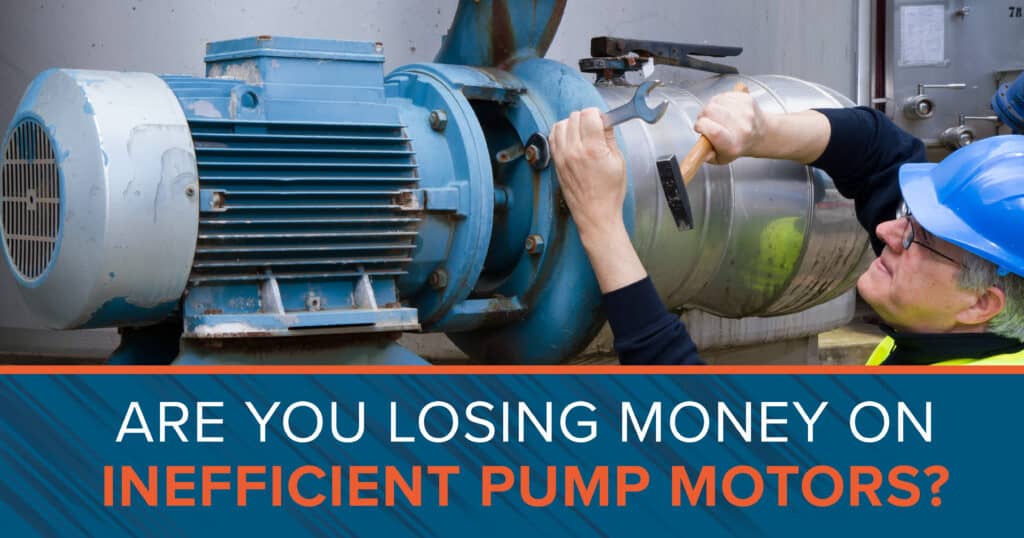Most pumps and other types of rotating equipment run on electricity. If that’s the case at your facility, the odds are good your motors account for a large portion of your electric bill each month. This is why efficient pump motor management is so critical. You could be throwing money out the window every day.
Several key issues affect proper motor management. Here are the most important factors any operator should consider:
Equipment Purchasing
It starts with purchasing and installing the best equipment. Many of today’s pumps are designed to be more energy-efficient. The older your equipment is, the more likely even the most basic modern model will improve operating efficiency. It is wise to explore all your equipment options when purchasing a new pump or motor. You need to find a pump that is ideally suited for your specific application and production needs. Then you should aim to find one that will give you the most optimized performance.
A more energy-efficient model or custom configurations may present a larger up-front investment because of a higher price tag. However, you have to look at it from a long-term perspective. How much money can any given pump save you in operational costs over the long haul? You may be able to save significantly on electricity over time—or fuel if it’s a diesel-driven motor—compared to a less-efficient design.
Current Equipment Upgrades
You may be looking to upgrade what you already have in operation. Perhaps it’s time to invest in a variable frequency drive (VFD) system or consider upgrading specific components for more efficient operation. To be as successful as possible in this venture, complete a thorough optimization analysis. Review your entire system and each piece of equipment. Determine possible failure points and issues that could be hindering operational efficiency. This process will enable you to better identify the problems with your current equipment and steps you can take to optimize it for improved energy efficiency.
Proper Maintenance Plan
Once you have the right equipment in place, it needs proper maintenance to stay cost-efficient. You must have a consistent and detailed maintenance schedule with clear procedures. You should keep commonly replaced parts on hand, including mechanical seals, bearings, and valves. You should perform preventative maintenance procedures and make proactive repairs before major breakdowns occur. Consider investing in advanced monitoring technology and learn the art of predictive maintenance. You can have a more efficient overall operation. Your pump system will consume less energy; there will be less downtime for repairs; and your equipment will last longer. These all add up to significant cost savings over time.
Imagine how much money you can save in a year if your pump motors are running just 10 percent more efficiently. The more efficient your motors are and the better your motor management plan, the more money you can save in the long term.
For all your pump system optimization and equipment selection needs, contact DXP Pacific. Our team of experts can provide the most efficient solutions available, so you can make the right decisions and save more money. Call us today to learn more.

